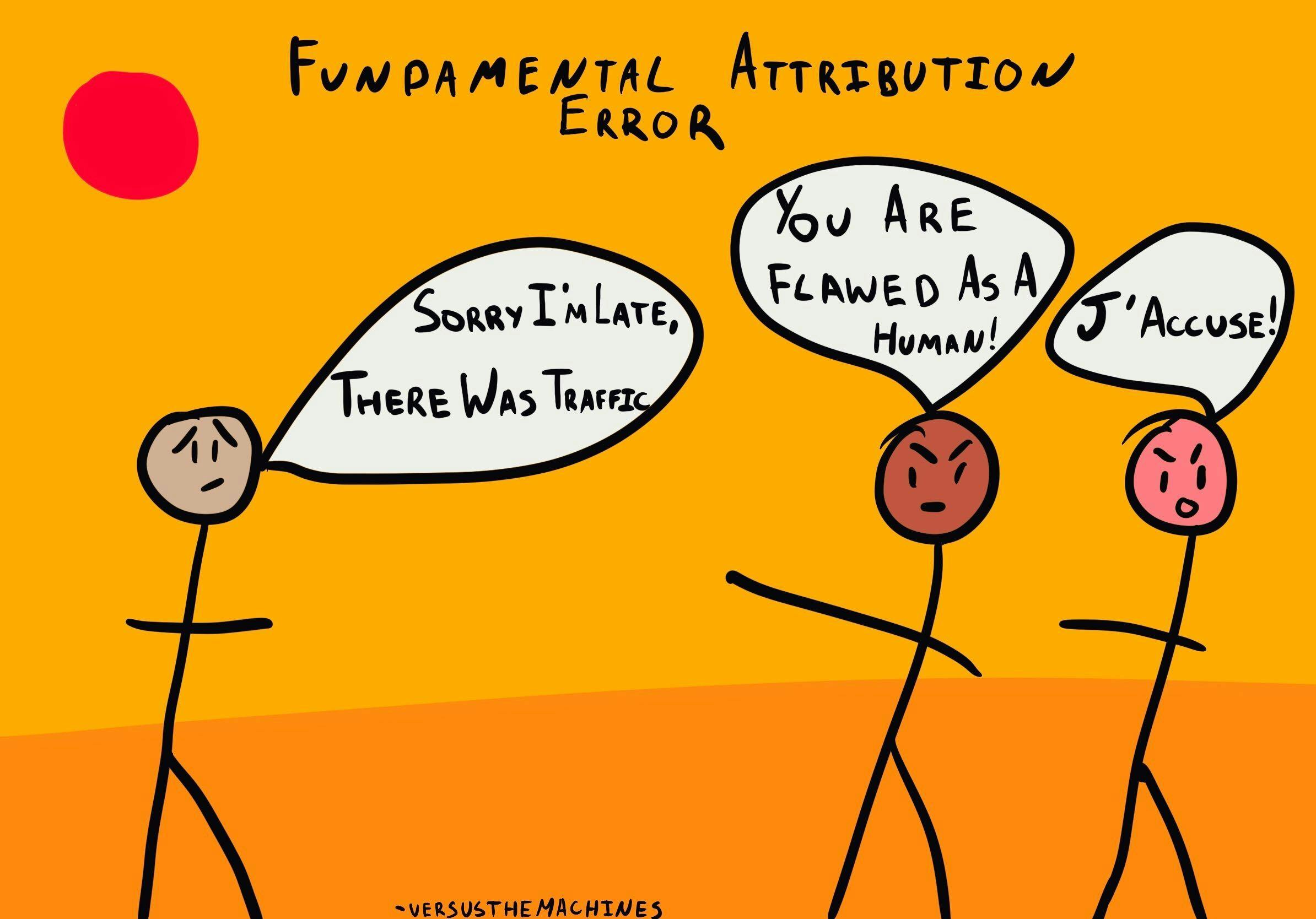¿Por qué subestimamos la influencia de la situación en el comportamiento de las personas?
¿Cuál es el error fundamental de atribución?
El error fundamental de atribución (fundamental attribution error, FAE) describe cómo, al emitir juicios sobre el comportamiento de las personas, solemos dar demasiada importancia a los factores disposicionales y restar importancia a los situacionales.5 En otras palabras, creemos que los rasgos de personalidad de las personas influyen más en sus acciones que el resto de factores que escapan a su control.

Dónde se produce este sesgo
Supongamos que un día vas en coche al trabajo y alguien te corta el paso. Furioso, decides que el otro conductor es un egoísta que no se preocupa por la seguridad de los demás. Sin que tú lo sepas, el otro conductor no suele cortar el paso a nadie y normalmente es muy cuidadoso con la seguridad, pero en este momento se dirige a un hospital por una urgencia familiar y actúa de forma distinta a la habitual.
El error fundamental de atribución nos lleva a hacer suposiciones rápidas, y a menudo incorrectas, sobre los demás sin tener en cuenta que puede haber otra razón para el comportamiento observado. Suele ocurrir en situaciones en las que conocemos poca información, ya que atribuimos el comportamiento de las personas a factores situacionales o disposicionales.